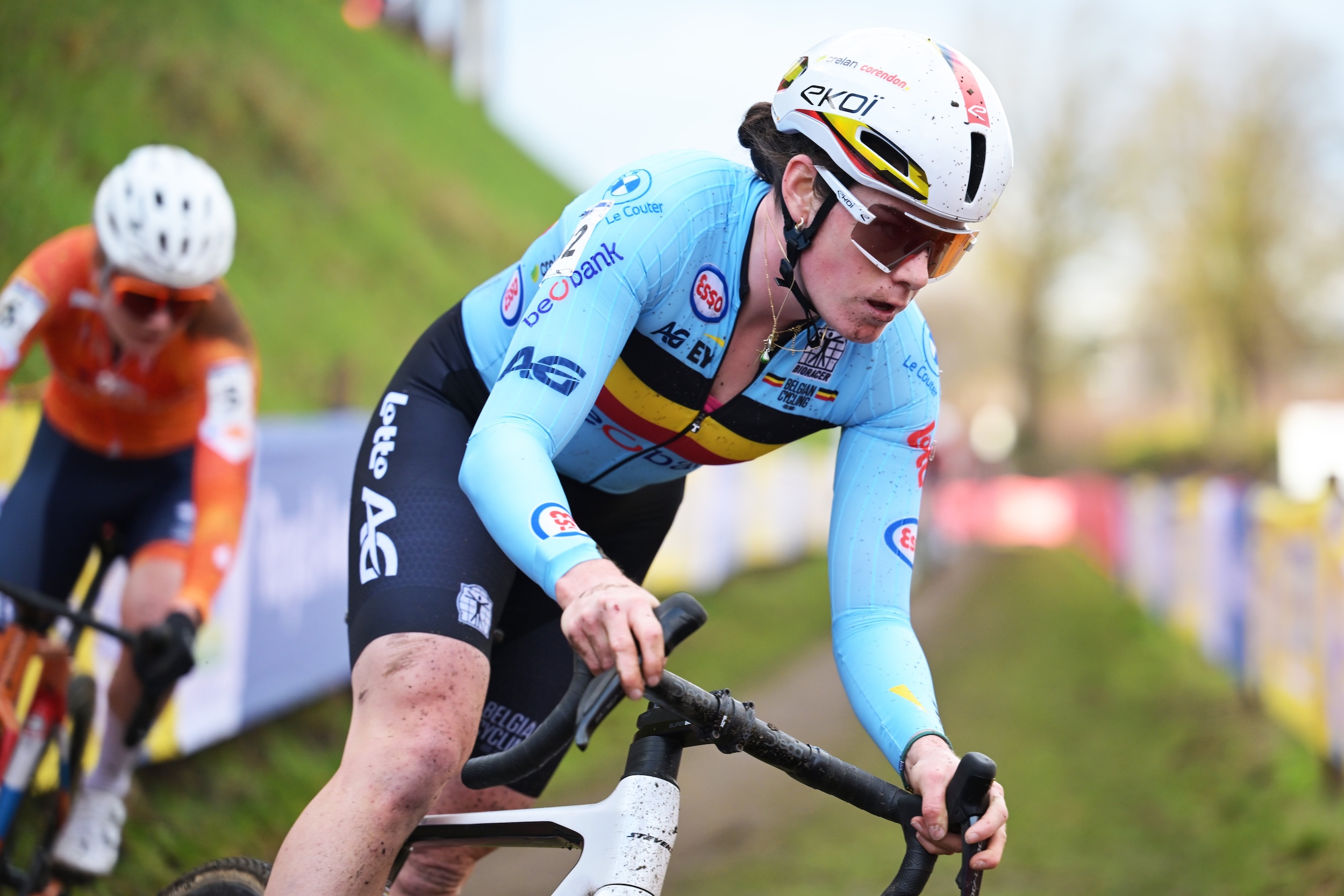Froome: Things can change very quickly at the Vuelta
Vuelta a Espana leader remains cautious despite extending race lead
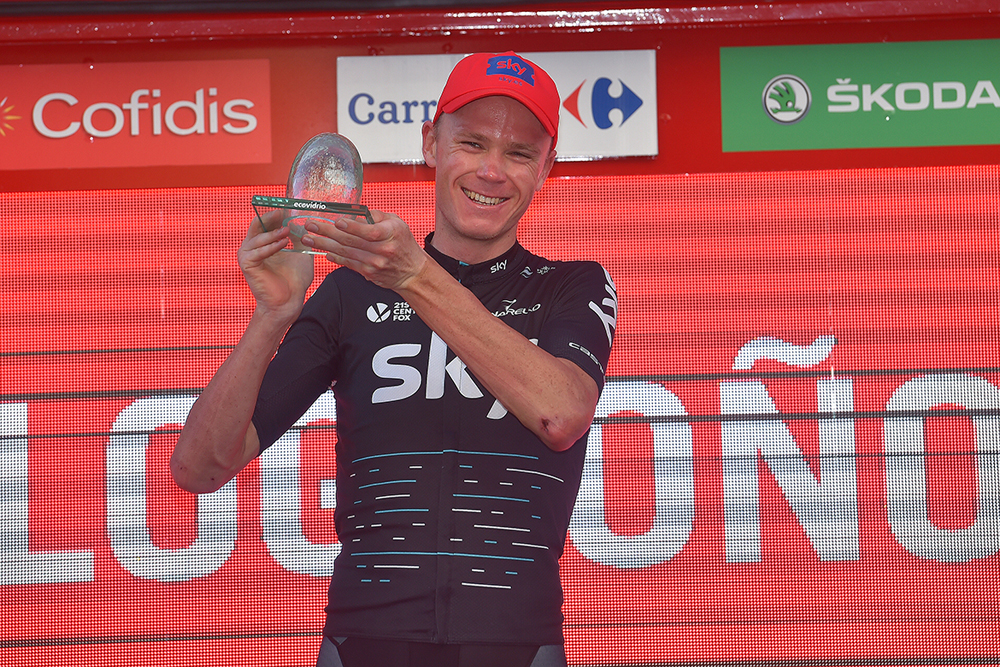
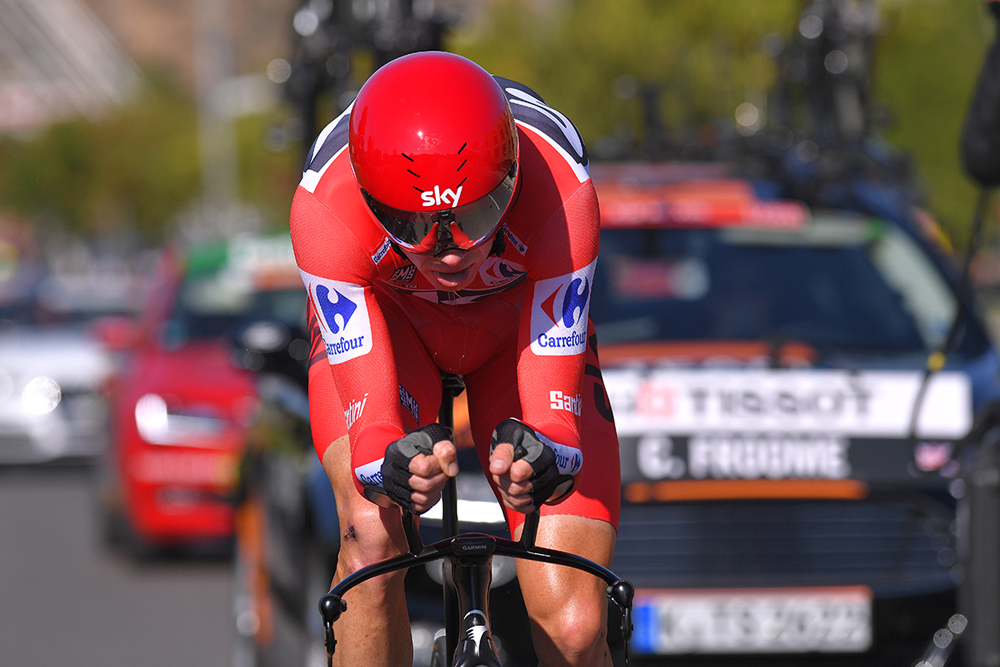
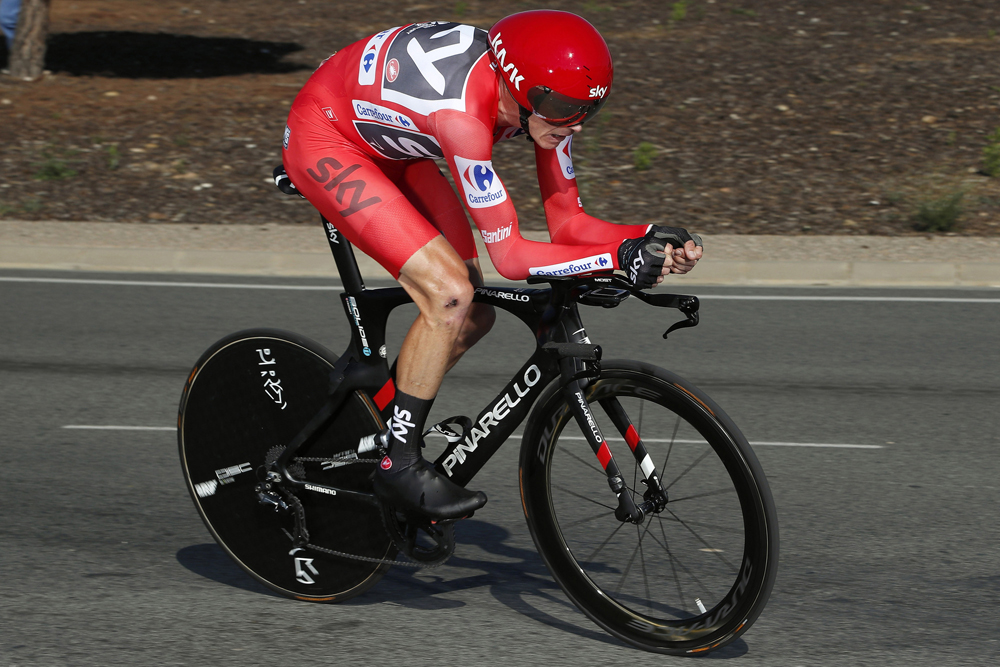
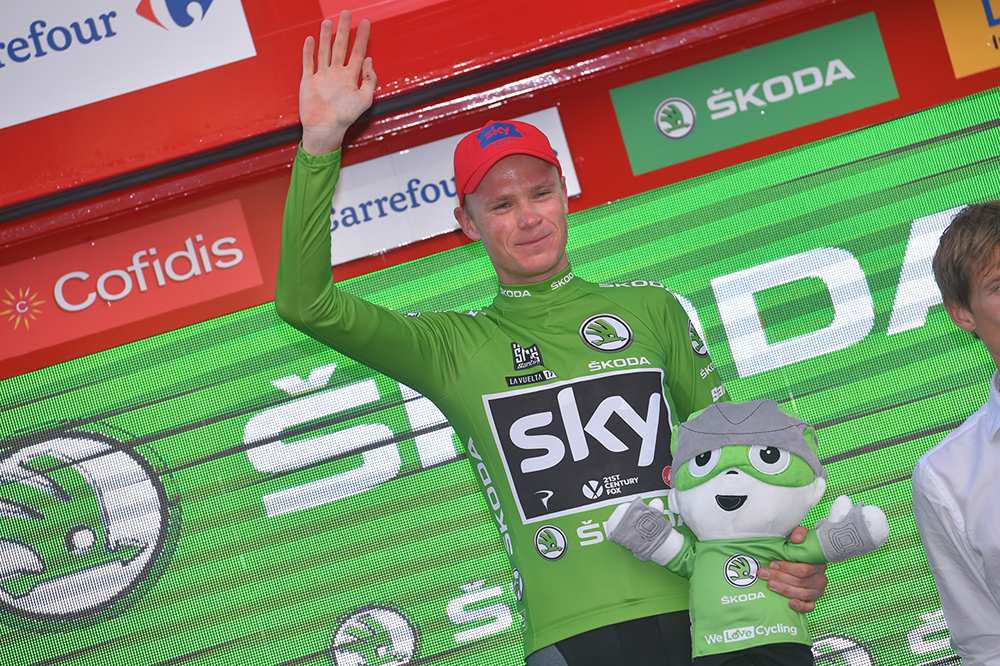
Chris Froome put himself into a comparatively comfortable position in the Vuelta a Espana general classification with a victory in the stage 16 time trial, but despite leading the race by almost two minutes, he maintains a cautious approach when he talks about the possibility of standing on the top step of the podium in Madrid this Sunday.
Froome almost doubled his lead over Vincenzo Nibali (Bahrain-Merida), adding another 57 seconds to his advantage over the Italian in Logroño with an authoritative performance – his second stage win of the race. He leads the standings by 1:58 over Nibali, with Wilco Kelderman (Team Sunweb) in third place at 2:40.
Froome's first question during his post-stage press conference was whether or not he had all but won the race with his performance. The Team Sky rider was measured in his response.
"As we saw last week, things can change very quickly at the Vuelta," said Froome. "I'm extremely happy with the result today but I think we'll just have to take it one day at a time. There are four more really hard stages, especially tomorrow with Los Machucos in the final. So, I take it day by day but, of course, it's a really good position to have almost two minutes to second place."
Froome was initially down on a fast-starting Kelderman at the opening time check, but he quickly reversed the order and by the time he reached the line he had some 29 seconds on the Dutchman. Froome was unaware of how he compared to Kelderman though with next to no time gaps in his earpiece until the final kilometres. While he was actually extending his lead on Kelderman and his other rivals, Froome was left thinking the worst.
"In my mind, I thought that maybe in the car they didn't want to tell me because they weren't great and maybe they didn't want to kill my morale by saying you're a minute down or you're 45 seconds down," Froome explained with a wry smile. "I assumed the worst and I was really fighting that in my mind for the first 30km and only in the last seven or eight kilometres to go did Nicolas Portal tell me that I was fighting for the stage victory. At that point, everything began to feel a lot better again.
"I think that I did start a bit conservatively, knowing that pretty much the first half of the time trial was going up in steps. I knew that some guys would probably start a bit too quickly and probably burn a bit too much energy on the climbs and fade towards the end. I think, my first half and second half were probably a bit more similar, and I didn't slow down in the end. I think that some guys went fast at the start and slowed down. I think I started at a speed that I could maintain for 40 kilometres."
The latest race content, interviews, features, reviews and expert buying guides, direct to your inbox!
Now that he has a tidy advantage over the other general classification, the remainder of the Vuelta a Espana becomes a maintenance job for the race leader. He doesn't discount making a move on the climbs himself but says that using his team to defend is the best way forward over the coming stages.
"I don't think that I have to go out and gain more time, sitting in this position, but certainly if the opportunity is there, then it would be great to go for another stage victory over the next few days. The most important thing now is the advantage I've got now and looking after it," said Froome.
"This is a strategy that we have been riding and we've found most efficient at the Grand Tours, but of course it changes depending on who I'm racing against and the parcours of the race. Of course, if I needed to gain a minute on someone else, then, of course, I would have to go mano a mano with the other guys and attacking. In the position I'm in now, I can rely on my teammates and control the race a bit more with them."
Born in Ireland to a cycling family and later moved to the Isle of Man, so there was no surprise when I got into the sport. Studied sports journalism at university before going on to do a Masters in sports broadcast. After university I spent three months interning at Eurosport, where I covered the Tour de France. In 2012 I started at Procycling Magazine, before becoming the deputy editor of Procycling Week. I then joined Cyclingnews, in December 2013.

